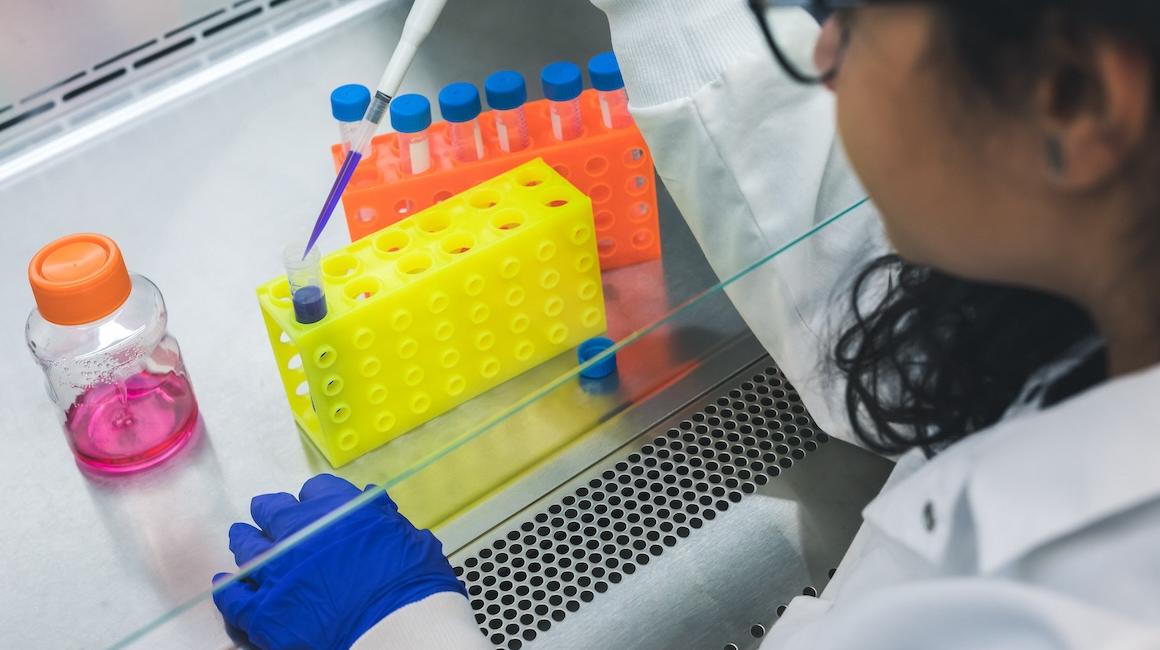Duquesne University has received a new $1.5 million grant that will expand research into using nanoparticle technology to preserve human limbs for transplantation surgeries.
The grant awarded to Dr. Jelena M. Janjic of Duquesne’s School of Pharmacy will create novel preservation strategies for multiple tissue types, including skin, bone, nerves and blood vessels. Preserving tissue is essential for successful transplantation, as several hours can pass before the donor tissue is recovered and transplanted into the patient.
“The proposed technology is a breakthrough advance beyond current standard of care options,” said Janjic, associate professor of pharmaceutical sciences at Duquesne and founder and co-director of the university’s Chronic Pain Research Consortium. “New preservation strategies that prolong tissue viability for more than 24 hours would allow time to transport tissue across large geographic zones while also improving patient outcomes.”
The award, from the U.S. Department of Defense’s Reconstructive Transplant Research Program and the Congressionally Directed Medical Research Programs, brings together a multidisciplinary team representing two academic centers and two industry partners.
As the lead researcher, Dr. Janjic will partner with Dr. Vijay S. Gorantla, professor of surgery at Atrium Health Wake Forest Baptist Medical Center, to study the efficacy of novel therapies developed in her lab at Duquesne. Faron Pharmaceuticals, a Finnish drug discovery company, and BMIOrganbank, a leader in clinical and research solutions for organ preservation, are industry collaborators on the project.
“Dr. Janjic's preservation platform will leverage cutting-edge therapeutics for vascular protection as developed by Faron Pharmaceuticals, led by CEO Dr. Juho Jalkanen, and organ preservation technologies led by BMIOrganBank, led by CEO Carrie DiMarzio,” said Gorantla.
The Duquesne nanotechnology, the first to be created using pharmaceutical quality by design standards, uses nanoparticles as oxygen carriers. A key benefit of the quality by design process is that the nanoparticles can be manufactured on a large scale, as will be required for clinical use, Janjic said.
“The use of nanotechnology represents a paradigm shift in tissue preservation,” Janjic said. “It can effectively deliver oxygen, stabilize the tissue and reduce inflammation, helping to ensure the tissue is healthy for transplantation, which is critical for patient and graft outcomes.”
Janjic, who created the first inflammatory pain nanomedicine targeted to immune cells, added that reducing tissue damage could extend the donor allocation time and distance of transportation, allowing development of a national matching system for bone marrow and cord blood transplants.
Duquesne University
Founded in 1878, Duquesne is consistently ranked among the nation's top Catholic universities
for its award-winning faculty and horizon-expanding education. A campus of nearly
8,200 graduate and undergraduate students, Duquesne prepares students by having them
work alongside faculty to discover and reach their goals. The University's academic
programs, community service and commitment to equity and opportunity in the Pittsburgh
region have earned national acclaim.
It's time for bigger goals. Follow Duquesne University on Facebook, X (formerly Twitter), Instagram and LinkedIn.
www.duq.edu
News Information
School
Topics
Published
August 09, 2024


